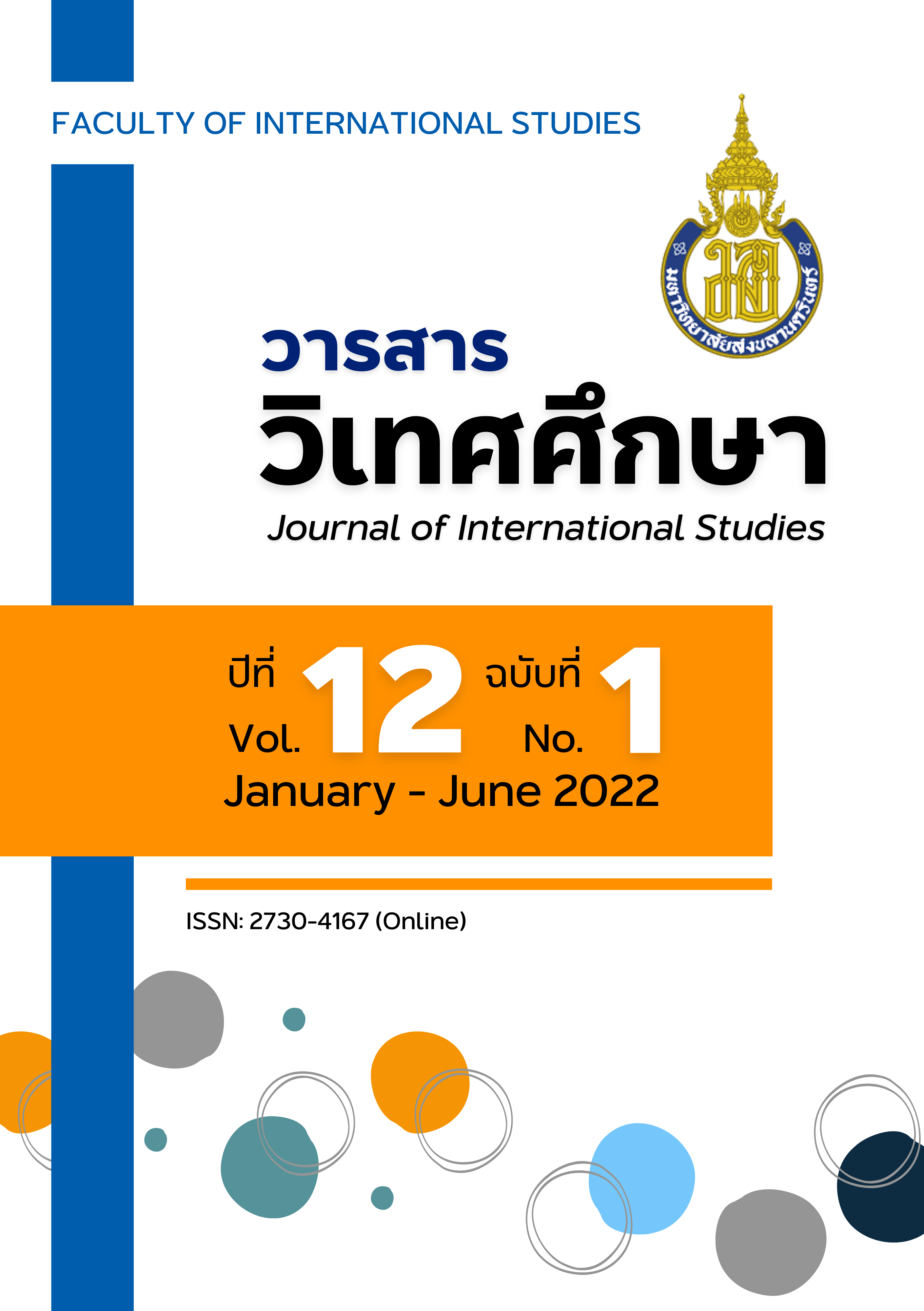ความแตกต่างระหว่างเจเนอเรชันและความพึงพอใจในงานของบุคลากร : กรณีศึกษาอาจารย์ในมหาวิทยาลัยสงขลานครินทร์ วิทยาเขตภูเก็ต
Main Article Content
บทคัดย่อ
วัตถุประสงค์ของงานวิจัยนี้เพื่อศึกษาระดับความพึงพอใจในงานและศึกษาความแตกต่างของทัศนคติต่อความพึงพอใจในงานของอาจารย์มหาวิทยาลัยสงขลานครินทร์ วิทยาเขตภูเก็ตในสามเจเนอเรชัน ได้แก่ เจเนอเรชัน Y หรือ มิลเลนเนียล, เจเนอเรชัน X, และ Baby Boomers โดยใช้แบบสอบถามจำนวน 108 ตัวอย่าง จากการวิเคราะห์ความแปรปรวนพหุคูณทางเดียว โดยผล Wilk’s lambda พบว่า มีความแตกต่างอย่างมีนัยสำคัญระหว่างความพึงพอใจในงานและกลุ่มของเจเนอเรชัน ที่ F(12, 200) = 7.312, p < 0.05; Wilk's Λ = 0.483, Partial Eta Squared = 0.305 ซึ่งผลการศึกษาพบว่า เจเนอเรชัน Y มีระดับความพึงพอใจอย่างมีนัยสำคัญสูงกว่า Baby Boomers และ เจเนอเรชัน X และผลการศึกษาชี้ให้เห็นถึงความแตกต่างที่มีนัยสำคัญต่อความพึงพอใจในงานทั้งสามด้าน คือ (1) ลักษณะของผู้นำองค์กร (2) ทรัพยากรและโอกาสในหน้าที่การงาน (3) ลักษณะงานและสิ่งแวดล้อม
Article Details

อนุญาตภายใต้เงื่อนไข Creative Commons Attribution-NonCommercial-NoDerivatives 4.0 International License.
ข้อความและความคิดเห็นที่แสดงในบทความ เป็นแนวคิดของผู้เขียน มิใช่ความรับผิดชอบของกองบรรณาธิการ และคณะผู้จัดทำแต่อย่างใด
บทความ ข้อมูล เนื้อหา รูปภาพ ฯลฯ ที่ได้รับการตีพิมพ์ในวารสารวิเทศศึกษา ถือเป็นลิขสิทธิ์ของวารสารวิเทศศึกษา หากบุคคลหรือหน่วยงานใดต้องการนำทั้งหมดหรือส่วนหนึ่งส่วนใดไปเผยแพร่ต่อหรือเพื่อกระทำการใด ๆ จะต้องได้รับอนุญาตเป็นลายลักษณ์อักษรจากวารสารวิเทศศึกษา ก่อนเท่านั้น
เอกสารอ้างอิง
Anitha, J., & Aruna, M. (2016). Enablers of Employee Engagement of Gen Y at the Workplace with Reference to Automobile Sector. Amity Journal of Training and Development, 1(1), 93-108.
Benjamin, A., & Ilker, K. (2014). The Impact of Job Security on Job Satisfaction in Economic Contractions Versus Expansions. Applied Economics, 46(24), 2873-2890. https://doi.org/10.1080/00036846.2014.914148
Blau, P. M. (1964). Exchange and Power in Social Life. New York: Wiley.
Cogin, J. (2012). Are Generational Differences in Work Values Fact or Fiction? Multi-country Evidence and Implications. International Journal Human Resource Management, 23, 2268–2294.
Elisa, L. R., & Adriana, V. M. (2021). Relations Between Senses of Work and Job Satisfaction: Analysis of A Public Servants Category. Revista de Administração da UFSM, 14(1), 119-137. https://doi.org/10.5902/1983465934051
Fenich, G., Scott-Halsell, S., & Hashimoto, K. (2011). An Investigation of Technological Uses by Different Generations as It Relates to Meetings and Events: A Pilot Study. Journal of Convention & Event Tourism, 12(1), 53-63. https://doi.org/10.1080/15470148.2010.550839
George, E., & Zakkariya, K. A. (2015). Job Related Stress and Job Satisfaction: A Comparative Study among Bank Employees. Journal of Management Development, 34(3), 316–329. https://doi.org/10.1108/JMD-07-2013-0097
Krejcie, R. V., & Morgan, D. W. (1970). Determining Sample Size for Research Activities. Educational and Psychological Measurement, 30, 607-610.
Li, Y., Huang, H., & Chen, Y. Y. (2020). Organizational Climate, Job Satisfaction, and Turnover in Voluntary Child Welfare Workers. Children and Youth Services Review, 119(1), 1-10. https://doi.org/10.1016/j.childyouth.2020.105640
Marasinghe, M. P. L. R., & Wijayaratne, A. (2016). Generational Differences and Job Satisfaction in University Library Professionals, Sri Lanka. Universal Journal of Management, 4(9), 500-507. https://doi.org/10.13189 /ujm.2016.040904
Martin, A., & Gert, R. (2017). Perceptions of Organizational Commitment, Job Satisfaction, and Turnover Intensions in A Post Merger South African Tertiary Institution. Sajip journal, 34(1), 23-31. https://doi.org/10.4102/sajip.v34i1. 415
Maureen, S. A., & Jonathan, H. W. (2018). Generational Differences in Work Quality Characteristics and Job Satisfaction. Evidence-based HRM: A Global Forum for Empirical Scholarship, 6(3), 287-304. https://doi.org/10.1108/EBHRM-03-2018-0020
Mehra, P., & Nickerson, C. (2019). Organizational Communication and Job Satisfaction: What Role do Generational Differences Play?. International Journal of Organizational Analysis, 27(3), 524-547. https://doi.org/10.1108/IJOA-12-2017-1297
Ng, E. S., & Parry, E. (2016). Multigenerational Research in Human Resource Management. Research in Personnel and Human Resources, 34, 1-41. https://doi.org/10.1108/S0 742-730120160000034008
Omah, O., & Obiekwe, O. (2019). Impact of Employee Job Satisfaction on Organizational Performance. International Journal of Current Research, 6(12), 6-12.
Pang, K., & Lu, C. S. (2018). Organizational motivation, employee job satisfaction and organizational performance. Maritime Business Review, 3(1), 36-52. https://doi.org/10.1108/MABR-03-2018-0007
PSU Statistic Planning Division. (2021). PSU Data Set of Human Resources. Retrieved October 8, 2021, from http://www.planning.psu.ac.th/index.php/20-information/stat
Robbins, S. P., & Judge, T. A. (2017). Organizational Behavior. 17th ed. Boston: Pearson.
Ryder, N. B. (1965). The cohort as a concept in the study of social change. American Sociological Review, 30(6), 843-861. https://doi.org/10.2307/2090964
Saileela, K., & Thiruchanuru, S. (2017). Capturing the Nature of Generations at Workplace. International Journal of Advance Research and Development, 2(11), 95-106.
Saman, A. (2020). Effect of Compensation on Employee Satisfaction and Employee Performance. International Journal of Economics. Business and Accounting Research, 4(1), 185-190.
Sanchez, H. M. I., González-López, O. R., Mateos, M. B., & Tato, J. J. L. (2019). Work-Life Balance in Great Companies and Pending Issues for Engaging New Generations at Work. International Journal of Environmental Research and Public Health,16(24), 1-18. https://doi.org/10.3390/ijerph 16245122.
Sarah, J. Y., Jill, R. S., Craig, M. R., & Kyoung, T. K. (2013). Generational differences and job satisfaction in leisure services. Managing Leisure, 18(2), 152-170. https://doi.org/10.1080/13606719.2013.752213
Sox, C., Campbell, J., Kline, S., Strick, S., & Crews, T. (2016). Technology use within meetings: a generational perspective. Journal of Hospitality and Tourism Technology, 7(2), 158-181.
Stello, C. M. (2014). Herzberg’s two-factor theory of job satisfaction: An integrative literature review. Progress in Development Studies, 7(1), 21-32.
Vorina, A., Simonič, M., & Vlasova, M. (2017). An analysis of the relationship between job satisfaction and employee engagement. Economic Themes, 55(2), 243–262. https://doi.org/10.1515/ethemes-2017-0014


